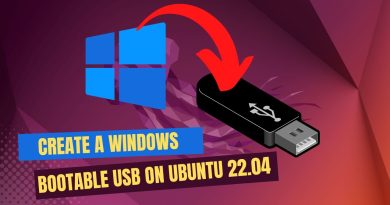Charger Reliability Could Be Improved With Open Source Software – We Explain
On today’s tech-heavy podcast Francie has the chance to sit down with Janek Metzner, Head of North America at PIONIX GmbH and co-partner in the creation of the Read Electric Avenue weekly newsletter. They discuss how free, open source software solutions can create harmony in the EV charging space, what the major challenges facing the industry are (from Janek’s perspective), what solutions exist, and his main motivations to continue in this innovative work.
Find Janek on Twitter/X: @janekmelectric
PIONIX: https://pionix.com/
EVerest: https://lfenergy.org/projects/EVerest/
GitHub: https://github.com/EVerest
Read Electric Avenue: https://www.readelectricavenue.com/
Image Credits:
PIONIX
Chevrolet
© CharIN Testival NA 2022, Author: Pino Aracri (innos GmbH)
Find us on all of these places:
YouTube: https://www.youtube.com/outofspecpodcast
Apple Podcasts: https://podcasts.apple.com/us/podcast/out-of-spec-podcast/id1576636119
Spotify: https://open.spotify.com/show/0tKIQfKL9oaHc1DLOTWvbd
Amazon: https://music.amazon.com/podcasts/473692b9-05b9-41f9-9b38-9f86fbdabee7/OUT-OF-SPEC-PODCAST
For further inquiries please email podcast@outofspecstudios.com
#evcharging #opensource #chargingsolution
0:00 Intro and Welcome
1:30 Who Is Janek Metzner
3:07 Intro to PIONIX Gmbh & their mission
6:10 Issues with Vague Charging Standards
8:15 EVerest Open Source
10:20 EVerest’s Value for Large CPOs
14:49 Lessons Learned
16:30 EVerest for Charging Manufacturers
19:38 Read Electric Avenue
22:21 Why Charging Sucks and What to Do About It
28:06 Janek’s Motivations and Missions
by Out of Spec Podcast
linux foundation




If only EA had used this platform maybe they would be able to fix the Signet surge themselves.
Great content. Thanks Francie and Janek!
Situation:
There are 14 competing standards.
Cueball: 14?! Ridiculous! We need to develop one universal standard that covers everyone's use cases.
Ponytail: Yeah!
Soon:
Situation: There are 15 competing standards.
Francie, Great video. Janek Metzner is very well-spoken and knowledgeable about his field. Bring him back for a 6 month update.
We were introduced to the nightmare of CCS1 compatibility issues when our Clarity Electric would not charge at all on Signet dispensers being used by EA and EVgo a few years back. That resulted in some aborted trips and zero range left situations, then early return of the vehicle. Is it true that a CCS1-capable charger does not know the VIN of the vehicle plugged into it, so cannot dynamically adapt to the quirks of a particular vehicle?
Then, on or about Feb 7, 2023, our CHAdeMO car (2015 Leaf) suddenly could not charge on a certain percentage of older Signet dispensers used by EA. So you never knew what to expect. About 5 months later, the problem completely went away without notice or comment from any player.
The entire industry is under-regulated, irresponsible, and unaccountable. We have lost hundreds of hours and thousands of dollars being guinea pigs for companies that won't take responsibility for their messes. Class Action Lawsuits!
And the answer is not Tesla.
Actually standard body makes specifications that are ambiguous. Tesla still has to work to specify how the CCS protocol works within NACS, otherwise NACs will fail to inter-operate. Open source is famous for being fragmented, for example there are at least 8 different Linux graphical environment implementations out there. 😅
Great content! Thanks Francie and Janek. I enjoy hearing from thought leaders in the industry. I used to test ATMs for our bank's ATM network which we sold as a service to smaller banks. The biggest area of problems with any set of protocols is with the error condition handling. This is where most protocol specs break down. I was saddened to hear that there really hasn't been much progress in this regard in the past 30 years. Let's hope Everest succeeds in solving the protocol related EV charging issues. In my view, lack of proper monitoring and repair are the biggest problems currently but successfully charging an EV is a lot more complex than pumping a tank of fuel.
So what hardware can be used with the EVerest software?
We certainly need some collaboration amongst auto OEMs, charger manufacturers, and hardware/ software producers in the charging space. A shared resource/development space would seem to help. Working toward a common, reliable, cost effective goal makes a lot of sense looking forward. Interesting to see that even though EVs are a new and evolving commodity, we sometimes need to look backward as well.
I completely agree, this would be a great idea to have open source software for DCFC.
Thanks for interviewing Janek, but the title was misleading. Since the lack of reliability is due to CCS1's lack of standardization of how its protocols are utilized. Which for example is how we got more than one plug-in charge standard within CCS. And horrendous reliability. Not the lack of open source software.
What should have been asked is with SAE J3400 ie NACS becoming the standard. What is the need for and the future role of the Everest Project? (Now that there's a higher level of standardization in the industry within North America)
This is really good, Francie! Thank you. Content rich! And thank you to Janek, as well, for being willing to describe and explain what open source work is all about in the BEV charging area.